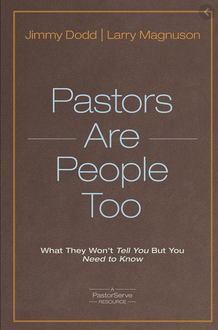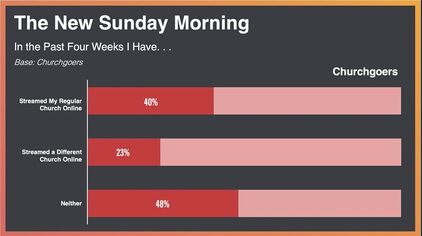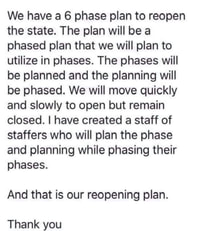|
I know a lot of us are processing the news from the last few days. This is my best attempt at responding pastorally to what we've seen dominate our screens. I'll be sharing this with our church later this morning from my heart. Like many of you, I found myself fixed on the news the last several days. It was surreal to see the images and video from across the country. For me I was an observer until the protests and demonstrations happened in Louisville. I watched streets I’ve walked on many times, places Carrie and the boys and I have been, and places dear to my heart ripped apart. I watched as a reporter for the news station my grandfather worked at for 50 years was shot with pepper pellets in the safe zone. I watched as friends, especially minority friends, shared their pain on social media.
Others of you saw similar scenes in places you love: Chicago, Minneapolis, New York, Tampa, Los Angeles, Atlanta, Washington DC, and as of this morning more than 30 cities nationwide. I don’t pretend to have the answers, nor do we have the time to discuss the issues pervasive in all of these incidents. The stories of George Floyd, Breonna Taylor, Ahmaud Arbery, Travis Miller (OKC delivery driver), Christian Cooper (NYC dog leash), and thousands more that are lost in the news cycle should cause us to do one thing: weep. As Christians, we are people of the book. The Bible gives us so much to say about what’s going on in the news.
It’s with that last one I want to offer both a pastoral lament and a pastoral prayer. The pastoral lament is that we are grieved that we have not listened better to our African-American, Latino, and other POC neighbors. We have not listened to their pain, their struggle, and their stories of inequality. We have sugar-coated it by saying that we’re color-blind or that there is “one race” or at worst to blame them for their problems. It is a lament that in 2020 we are still dealing with the reality of a racially divided America. We see armed white men storm state capitol buildings because they can’t get haircuts get a pass and an endorsement from the Oval Office; but when black people protest the unjust killing of another, they’re viewed as dangerous thugs. It’s a lament that we can quote Dr. King and his dream for America, but we still clutch our wallets when approached by black men. It’s a lament that we defend the unborn, but we call those same people “leeches on the system.” It’s a lament that we say “all lives matter” but find reasons why they don’t. It’s a lament that we preach a Gospel of peace, but we turn a blind eye to those in bondage. Church, we must be better. We cannot fix everything. We cannot fix the macro. But we can address the micro. Before we begin the message, can I encourage you to 3 things:
Father, we come before you aching over the stories and images that have consumed our TVs and screens for these last several days. We ache for the families of victims, we ache for the communities affected, we ache for the businesses and homes destroyed by violence. We ache for those entrusted with our safety who are caught in the middle of this. We plead with you Jesus, as the Prince of Peace, to be with our hurting nation and our hurting communities. We ask that your people, your Church, would respond in truth, in grace, in love, and in mercy. We pray we would be Your hands, and Your feet. Holy Spirit, we know that only You have the power to change hearts. We plead with you to bring light to darkness, bring repentance to coldness, and bring hope from despair. In the mighty name of Jesus we pray, Amen.
2 Comments
 It's always fun to start on a book and realize a few pages in that you're not the target audience. Like watching Star Wars and not knowing where Captain Kirk is. When I picked up the book Pastors Are People Too I hoped it would be a helpful read. What I took from it was less how it applied to me, and more about how helpful it would be for others to read. Dodd & Magnuson wrote this from the perspective of pastors to non-pastors to share with them the struggles and realities of what pastors experience. It's not a complaint or an airing of grievances. Far from it. I have major issues with pastors who gripe and complain about their job or their life. Ministry is hard. It's not for wimps. That's why I was glad, as a pastor, to read what Dodd & Magnuson said. The target for this book is for church peeps. It helps them pull back the curtain and get an honest assessment of what it's like to be on the other side of a pulpit. It gives a perspective many in the pews and chairs may not see because, well... that's just reality. The typical church peep isn't in the loop on the counseling, preparation, administrative, and personal side of ministry. They're not aware of the spiritual battles happening within and outside of a pastor's heart and family. For most, the only exposure they get to a pastor is Sunday morning. Dodd and Magnuson cover a number of important topics for church peeps to know about: expectations (how many do you have? multiply that by your worship attendance), capacity, friendship, compensation, conflict, spouse, and family/kids. Like the subtitle says, it's all the things your pastor wants to say but we all know he can't. I found myself resonating with so many of these, feeling aches in the soul but knowing these were heavy things I'm only able to share with a very small group of people. If you're reading this and you're a pastor, hang in there. You need a champion. Not someone who'll fight your battles for you, but someone who will hold you up like Aaron and Hur held Moses so God could fight for them. Give a copy of this to someone in your church who could be your champion. You are a fool if you try to be a shepherd alone. And you're a fool if you never ask for help, for prayer, for support, or for encouragement. One of the greatest and richest blessings in my life is that I have a running text thread with a Deacon who is nothing short of a Godsend. If you're not a pastor and you're reading this review, please be your pastor's champion. Your pastor doesn't need a cheer squad. Your pastor needs a champion. Cheer squads say rah-rah, champions spend time in prayer. Champions hold up their exhausted pastor. Champions help dissolve conflict. Champions ask how you are doing, not what's next on the calendar. Champions genuinely desire to be a pastor's friend, not so they can get access or leverage. Church peeps, your pastor needs you to be a champion. He might be hanging on by a thread, his marriage could be in crisis, he could be overwhelmed by the spoken and unspoken expectations. Here's five things you can do to be your pastor's champion today: 1. Ask how you can pray for him, not for church stuff, but for him and the family 2. If their family has children, help them find childcare/babysitting 3. Commit to squash gossip and disunity 4. Love him genuinely as a friend and brother in Christ 5. Bring others in as champions  For the last few days there's been an interesting infograph being shared online that gives a snapshot of some research done by the folks at Barna. It's eye opening. While we've been under the COVID restrictions, most churches have worked hard to preserve some sense of normalcy with digital services and Bible studies. A lot of those churches, without notice or preparation, have made the most of this crisis by creatively engaging their congregation and community through video-based services. But when it started, I don't think any of us had any idea how long it would last. I know for us we spent time talking about this on a week-to-week basis. We had no idea it would be 84 days between in-person gatherings, or that for Easter we'd be staring at stage lights pre-recording a service instead of shouting "Jesus is alive!" in person. Once we got past the initial learning curve of shifting from a service mindset to a broadcast mindset, we grinded our way through week after week, hour after hour of editing and uploading. Until we all got fatigued about it. At the core, that's the heart of the Barna snapshot. We've all hit digital fatigue. Even for us as pastors and leaders, I think I can speak for all of us where I say "I'm tired of this." It's exhausting. It's even harder to preach in an empty room than a crowded arena. And as we've observed from our YouTube channel, the views each week have been on a decline since Easter. Why? We're over it. Barna's work has shown that for many Christians, there's a fatigue to watching services online. And for good reason. We weren't meant or made to worship and engage apart from one another. We were made for fellowship, for corporate worship, for taking the Lord's Supper together, and we are missing something when we don't have that. Whether your church has already resumed in-person, is planning to soon, or isn't sure when that will happen, you'll still have people who aren't able to attend those services and will need to continue to fight through the digital fatigue. However you respond, make sure you pastorally help those on the other side of a screen engage so they can fight through the digital fatigue. 1) Take time to acknowledge, speak to, and recognize the digital audience. Whether it's in the announcements or during the message, look at the camera and talk directly to that person on the other side of the screen. Engage them. Love them. Tell them they're missed. 2) Encourage in-service engagement through comments and discussion. All our streaming capabilities have the ability to post, reply to, and engage with comments. So put those out. Share polls. Ask people to give specific feedback. Let them do more than passively watch. Help them actively engage. 3) Mix up the format of your service. We like to say we're not liturgical in the low-church movement, but good luck getting the offering moved out of its normal place! Changing up your worship service format and order is a good thing to do regularly. Don't just plug and play the same thing every week in your digital services. 4) Stay positive. It can be really easy to be sour during this season. But as leaders, we have to be lead optimists. We have to stay positive, communicate hope, and push back against the sadness that so many are experiencing. It's not denying those hard times, it's overshadowing their tears with the risen Christ and the hope we have in Him. 5) Make it count in-person. Don't just resume in-person gatherings and pretend nothing happened. Make it count. Celebrate. Sing. Clap. Share testimonies. Tell stories of how God worked. Preach the Gospel powerfully. Even if your auditorium is a third full, blow the roof off the place.  If you're tired of hearing "unprecedented times," "out of an abundance of caution," "new normal" or any of the other buzz phrases thrown out during COVID-19, join the club. We're all ready to reenter what we can as soon as we can. Pastors, you feel this a lot. You want to be back in church. Your church wants to be back together. Your email or text messages might be filling up with suggestions, ideas, or pressures. Compound that with the reality that the playbook for the reentry is being written as we're reentering, and it's a really hard time to be making decisions that affect dozens, if not hundreds, of people. Sound like your Monday too?  Leading pastorally through a global pandemic is something that absolutely none of us were prepared for. Unfortunately, leading out of a global pandemic is something none of us are prepared for. We're used to people disagreeing with us or offering criticism, that's part of the territory. But when it's in the middle of something we've never experienced, it can feel like an added weight or a heavier burden to have people impatient about returning to regular scheduling. Since we're learning this on the fly, here's what I've learned in the last couple months: 1. Don't make decisions in a vacuum - Making decisions like this shouldn't rest entirely on your shoulders. Bring in stakeholders, lay leaders, staff, and if you have one a leadership team into the decision making process. They will bring a different perspective than you have, and if it's a volunteer team they don't have the vocational pressure you do. 2. Make sure we is heard instead of me - Along with the first point, this is huge in helping explain to people the decisions made and the process taken. We is plural. We isn't a vacuum. We is a group. We are stakeholders. Me is you alone. Leadership in the church as a pastor happens only when our trust reserves are built up. By making sure we is what people are hearing you're leaning on the trust reserves of others instead of your own. 3. Be prayerfully patient - There's something in the tyranny of the urgent that causes us to react. The squeaky wheel gets the oil. The badgering person gets placated so they leave you alone. The impatient people give us a fire under our seat. But if we're going to work through this, we must be prayerfully patient as we seek out the best for our congregations. We cannot embark on this without significant prayer as we look for wisdom to move. My friend Sam Rainer has a great post on pastoral prayer during this season. 4. Stay positive - It's been a hard season. Some churches have suffered financially. Some pastors have been affected deeply by the crisis. Churches have had to endure grief and hardship without the reassurance of fellowship. But negativity in how we communicate and how we approach the reentry will only serve to spark the toxicity and impatience. Stay positive. Things will get better. We have a sure hope, not a wish, that Jesus will finish what He started. 5. Be kind - Kindness never ages. And for most people, their impatience isn't because they want to be a pain, they just want to have some normalcy in their lives. We can't blow that genuine desire off as troublemaking or divisive. Be kind. People are hurting. Kindness helps them, and us, see that we can still find measures of joy even when things are upside down. In our kindness, and even through our annoyance, affirm the desire of the impatient that they desire to be back with church family. 6. Stay the course flexibly - It's hard when we don't know what the next week, much less the next day, holds as we look to reenter normalcy. That's why it's crucial when you're making the decisions with key leaders that you commit to stay the course, as much as you can. We've adopted the words used by Florida's governor: safe and smart. Those are the two words we're keeping in mind as we make decisions. Another church in our area is using "do the next right thing" to make their decisions. However you do it, stay the course. But be flexible enough that you can adapt to the latest news and guidance from the government and CDC. How are you doing with your church's reentry plans pastor? How can I pray for you? Around much of the country, churches are beginning (or have already finished) making their plans for what their reentry to in-person gatherings will look like. As we see restrictions lifted and the encouragement to return to a socially distant sense of "normal" it's worth our time as pastors and ministry leaders to look at the reentry as more than a restart.
At Emmanuel, our target date for reentry is June 7. It's a bit later than what Florida has allowed, and we chose to delay our reentry so we could make sure we have enough supplies, protective equipment, and are able to set ourselves up for what worship will look like in the reentry phase. That means converting our Fellowship Hall into overflow seating, removing Bibles, hymnals, and other things from the pew racks, doing a thorough cleaning, and stocking up on supplies (do you have any idea how hard it is to find things!). Throughout this quarantine season, my refrain to our church has been "When we get back together in-person, we're blowing the roof off the place." I still want to see that. We're not sure what kind of crowd we'll have on the 7th, but we're going to be loud. We're going to sing, we're going to clap, we're going to cheer, we're going to scream "Amen!" It's going to be a time of joy, of fellowship restored, and of a hope reminded. For us, it will have been 84 days since we last gathered. Pastors, don't just treat your first Sunday back like it's another normal Sunday. Your church has been through a difficult season. People have been discouraged, many have been personally affected by COVID-19, some may not be back to work yet, and all of us have come through this profoundly changed. It's not just another Sunday. Every Sunday is a refreshing of the good news of the Resurrection, but some Sundays are different. This will be one of them. Take time to celebrate. It's a good thing to cheer for what God has done. In every tragedy, there are always reminders of grace and goodness. Find those. Celebrate them. Recognize and share the good things that have come over these last weeks. Take time to pray. We know when we reenter in-person worship, we won't have everyone there. There will be a number of our folks, including some key leaders, who won't feel comfortable being in a public space like that yet. We know names and faces of people in our communities who have been affected by this crisis, whether it be their health or employment or family hardship. We know thousands will be grieving. We know that we aren't out of the woods yet. So take time to pray on that first Sunday. Recalibrate around a healthy doctrine of the church. The church only exists when it is assembled. That means we are made for fellowship and togetherness with one another. We cannot function, much less exist, without being together. Seasons may preclude us from meeting, whether it be a global pandemic or you wake up with a sick kid on a Sunday morning, but our natural and general desire should be to gather together on a weekly basis. Refocus on what the mission is. One of the blessings of this season has been that it has shown us what is and isn't important in our worship lives. Our mission is the Great Commission through the Greatest Commandment. We don't exist for the secondary stuff. That's what was taken from us during COVID. We lost the fellowship dinners and small groups and weekly events. But what wasn't lost was our task to take the Gospel to the ends of the earth as we love God and love Neighbor. That's why we're here. For Emmanuel, God put us at 8305 US Hwy 301 so we'd be a witness to our community. Love the church. Even though we're not going to be able to interact like we normally could, we still have to look at that first Sunday back as a way to renew our love for the church. As hard as it is, we cannot resume shaking hands, hugs, or taking the hand of a widow to tell her you've missed her. That shouldn't stop us from loving one another. We've spent time praying for/with one another, we've met needs by providing food and resources, and we've shared grief and joy over the phone and Zoom. |
Scott M. DouglasA blog about leadership and the lasting legacy of family ministry. Archives
August 2023
Categories
All
|
 RSS Feed
RSS Feed



